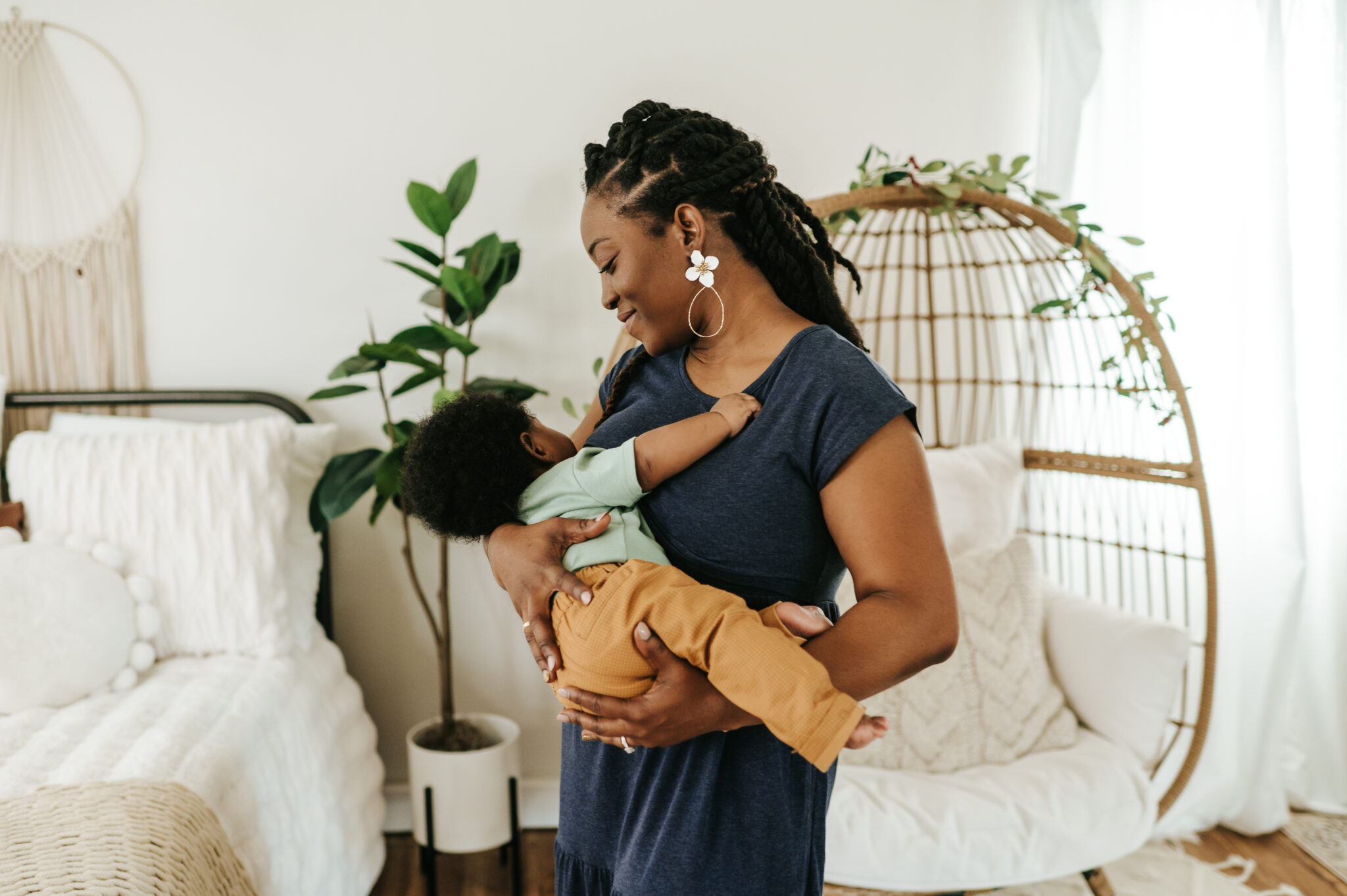The Myth of the Bounce Back
I was 15 days postpartum and an hour away from meeting up with a friend for the first time since having my son when I felt the panic rising inside me.
“I have nothing to wear,” I told my husband as I held back tears, frantically searching my unorganized closet for anything other than one of my husband’s oversized t-shirts.
Jeans were out of the question with my still-vulnerable incision (and let’s be honest: I wouldn’t have been able to button them up anyway), and the few nursing shirts I had were covered in splotches of spit-up in the ever-growing mountain of dirty laundry.
I’ve heard putting yourself together in the morning can help make you feel human sooner postpartum, but even after a shower and makeup, I sat there on my bedroom floor in baggy gray sweatpants and a nursing bra feeling defeated. All I could think about was that my belly still looked pregnant.
I knew that my body just performed a miracle. I knew I should be nothing less than absolutely grateful for all my body had done. And I was grateful. I did feel empowered.
The truth is, at the same time that I felt more amazed by my body than ever before, I also felt more like a stranger in my own body than ever before.
I wanted the first time my friends saw me to be a miraculous Before and After. I wanted to look exactly how I did before I was pregnant. I wanted The Bounce Back.
What I wanted wasn’t real. The Bounce Back is a myth.
At my 8-weeks-postpartum OB appointment, I asked my doctor why my stomach was still so swollen. I felt perplexed. I’m healed, I’ve been cleared–is something wrong? Why do I still look pregnant?
My OB explained that it takes months for the uterus to shrink down to pre-pregnancy size for most women. She reassured me that my body was healing exactly as it should, and that it would be several more months (a year, even!) before my belly would likely look anywhere close to “back to normal.”
I naively believed that if maternity leave ended by 6 weeks, surely that was the amount of time it would take for a woman’s body to recover. But that simply isn’t true.
Although there is, thankfully, more acknowledgement that an immediate postpartum bounce back isn’t realistic, there is still very little discussion surrounding the impact this bounce back pressure has on new mothers’ mental health.
A 2008 study among postpartum women reported that women experience their greatest point of body image dissatisfaction at 6 months postpartum. When a new mom is already trying to heal, nurture her newborn, and learn how to be a mother all over again (whether it’s her first or sixth child), the last thing she should have to concern herself with is the pressure to fit back into her pre-pregnancy jeans.
Low body image is linked to an increase in depression and anxiety. The pressure to bounce back after baby actually increases the likelihood that a mother will, in addition to all of the inevitable challenges postpartum, also experience depression or anxiety.
In a society that already does so little to support mothers–from no federal paid maternity leave, to a formula crisis, to one of the highest rates of maternal mortalities–we have got to put to rest (immediately and permanently) the societal pressure to bounce back.
So here is how I’m pushing back against bounce back culture in my postpartum journey:
- First, I have surrounded myself with fellow moms who empower me in this new stage of my life.
Do I have a partner who loves and supports me? Yes. But like so much of motherhood, this journey to self-love really does require a village of fellow moms to walk through it with you.
This was a lesson I learned early on with my first child: do not do it alone. Actively seek and nurture friendships with other moms. They will fight your battles with you, celebrate your wins for you, and love you–no bounce back required.
- Second, I’m allowing the space to both love my body and find it unfamiliar. After all, it is a new body in so many ways.
Every time I feel happy with my children in my arms, I try to recognize that I feel happy. It’s simple, but by being intentional in noting that I am holding my whole world in my arms thanks to my body, it helps me love myself more.
It also helps me to shut down the unkind thoughts. I imagine control-alt-deleting any hurtful thought about my own body that pops up in my mind, because how can I not love the body that brought these two lights into my life?
And every time I feel discouraged by my body, I hold space for that, too. I recognize that my body is different, and that change is hard for most people. It’s okay to struggle. It’s okay to feel discouraged sometimes. If anything, allowing myself to feel these feelings helps me to work through them faster and move forward.
After all, that’s what really happens after having a baby, isn’t it? Once you’ve had your baby, it’s not about bouncing back; it’s about moving forward.


So well said. Thank you for sharing your thoughts. Other mothers gain strength from your honesty. Family members know better how to understand and support you during this time.
It’s so important to share and process those feelings and to surround yourself with a loving village. Our bodies have done and are doing amazing things!